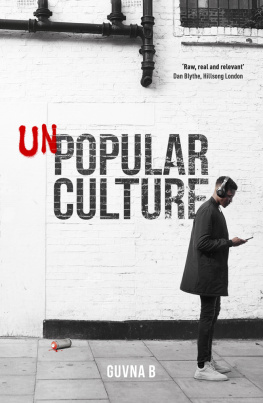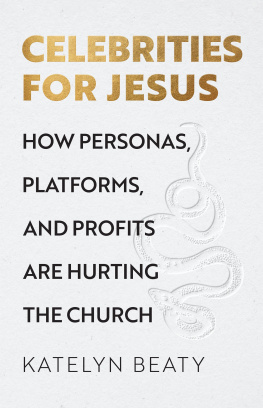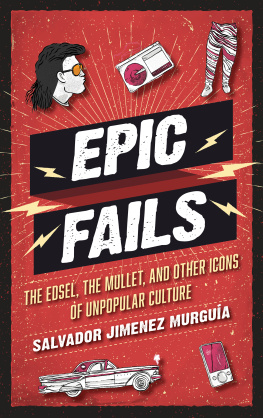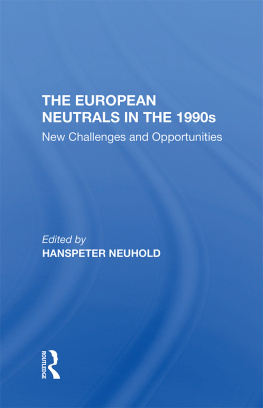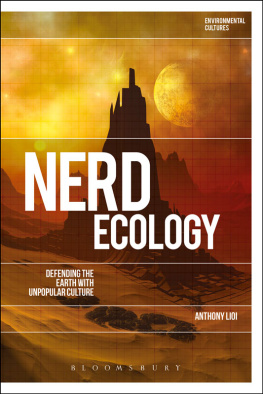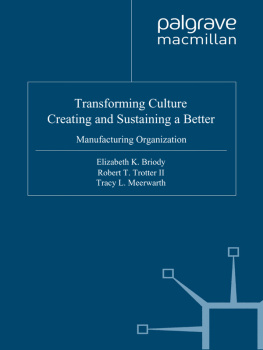Beaty - Unpopular culture: transforming the European comic book in the 1990s
Here you can read online Beaty - Unpopular culture: transforming the European comic book in the 1990s full text of the book (entire story) in english for free. Download pdf and epub, get meaning, cover and reviews about this ebook. City: Toronto;Europe, year: 2007;2008, publisher: University of Toronto Press, genre: Humor. Description of the work, (preface) as well as reviews are available. Best literature library LitArk.com created for fans of good reading and offers a wide selection of genres:
Romance novel
Science fiction
Adventure
Detective
Science
History
Home and family
Prose
Art
Politics
Computer
Non-fiction
Religion
Business
Children
Humor
Choose a favorite category and find really read worthwhile books. Enjoy immersion in the world of imagination, feel the emotions of the characters or learn something new for yourself, make an fascinating discovery.

Unpopular culture: transforming the European comic book in the 1990s: summary, description and annotation
We offer to read an annotation, description, summary or preface (depends on what the author of the book "Unpopular culture: transforming the European comic book in the 1990s" wrote himself). If you haven't found the necessary information about the book — write in the comments, we will try to find it.
Beaty: author's other books
Who wrote Unpopular culture: transforming the European comic book in the 1990s? Find out the surname, the name of the author of the book and a list of all author's works by series.
Unpopular culture: transforming the European comic book in the 1990s — read online for free the complete book (whole text) full work
Below is the text of the book, divided by pages. System saving the place of the last page read, allows you to conveniently read the book "Unpopular culture: transforming the European comic book in the 1990s" online for free, without having to search again every time where you left off. Put a bookmark, and you can go to the page where you finished reading at any time.
Font size:
Interval:
Bookmark:
UNPOPULAR CULTURE: TRANSFORMING THE EUROPEAN COMIC BOOK IN THE 1990s
In the last fifteen years or so, a wide community of artists working in a variety of western European nations have overturned the dominant traditions of comic book publishing as it has existed since the end of the Second World War. These artists reject both the traditional form and content of comic books (hardcover, full-colour albums of humour or adventure stories, generally geared towards children), seeking instead to instil the medium with experimental and avant-garde tendencies commonly associated with the visual arts. Unpopular Culture addresses the transformation of the status of the comic book in Europe since 1990.
Increasingly, comic book artists seek to render un-popular a traditionally degraded aspect of popular culture, transforming it through the adoption of values borrowed from the field of high art. The first English-language book to explore these issues, Unpopular Culture represents a challenge to received histories of art and popular culture that downplay significant historical anomalies in favour of more conventional narratives. In tracing the efforts of a large number of artists to disrupt the hegemony of high culture, Bart Beaty raises important questions about cultural value and its place as an important structuring element in contemporary social processes.
(Studies in Book and Print Culture)
BART BEATY is an associate professor in the Faculty of Communication and Culture at the University of Calgary.
Bart Beaty

University of Toronto Press Incorporated 2007
Toronto Buffalo London
Printed in Canada
Reprinted 2008
ISBN-13: 978-0-8020-9412-4 (paper)
ISBN-13: 978-0-8020-9133-8 (cloth)
ISBN-10: 0-8020-9412-0 (paper)
ISBN-10: 0-8020-9133-4 (cloth)

Printed on acid-free paper
Library and Archives Canada Cataloguing in Publication
Beaty, Bart
Unpopular culture : transforming the European comic book in the 1990s/Bart Beaty.
(Studies in book and print culture)
Includes bibliographical references and index.
ISBN-13: 978-0-8020-9133-8 (bound)
ISBN-13: 978-0-8020-9412-4 (pbk.)
ISBN-10: 0-8020-9133-4 (bound)
ISBN-10: 0-8020-9412-0 (pbk.)
1. Comic books, strips, etc Europe History and criticism. I. Title. II. Series.
PN6710.B42 2007 741.5 99409049 C2006-903810-4
University of Toronto Press acknowledges the financial assistance to its publishing program of the Canada Council for the Arts and the Ontario Arts Council.
This book has been published with the help of a grant from the Canadian Federation for the Humanities and Social Sciences, through the Aid to Scholarly Publications Programme, using funds provided by the Social Sciences and Humanities Research Council of Canada.
University of Toronto Press acknowledges the financial support for its publishing activities of the Government of Canada through the Book Publishing Industry Development Program (BPIDP).
Scholars who specialize in comics have frequently had to overcome institutional obstacles in order to complete their work. Inadequate library collections, a dearth of secondary sources, and a lack of institutional support for work in this interdisciplinary area are just some of the roadblocks I faced when undertaking this project. Thus, I would like to first extend my gratitude to the Social Sciences and Humanities Research Council of Canada for its ongoing commitment to inquiry-based research. Without its funding, I would never have embarked upon this project and this book would remain a series of uncollected thoughts in the back of my mind.
This book stems first and foremost from my interest as a reader of contemporary European comics. My awareness of this important cultural form might have remained casual were it not for the timely intervention of Tom Spurgeon, formerly of The Comics Journal. In 1997, Tom asked me to consider writing regularly on the topic of European comics for that magazine, and the result was an ongoing review column entitled Euro-Comics for Beginners. Writing this column sparked my interest in investigating European comics more deeply, and I am grateful to Tom for placing me on this road. I would also like to thank Gary Groth and Kim Thompson for their continuing patronage of the column, and Darren Hick, Eric Evans, Anne Elizabeth Moore, Milo George, Mike Dean, and Dirk Deppey for their editorial guidance over the ensuing years.
In 1997, while still a graduate student, I visited the Festival International de la Bande Dessine in Angoulme, France, for the first time. There I met many of the artists and publishers whose work I discuss in the pages that follow. My introduction to this world was aided considerably by the kindness of many friends who shared their knowledge and passion for European comics with me. A great deal of this book is born out of conversations that I have had over dinner at Le Passe Muraille with Christiane Markowitz, Uli Proefrock, and Kai Wilksen over the course of the past eight years. There is simply no way I can repay their kindness. The travellers at the Hotel Palme have changed from year to year, but they all contributed to this project in their own ways: Jessica Abel, Greg Bennett, Peter Birkemoe, Stephen Betts, Desmond Brice, Tony Davis, Tom Devlin, Alfred Eichholz, Sylvia Farago, Ben and Susan Katchor, Nadia Katz-Wise, Sean Lester, Ellen Lindner, Lisa Lippman, Jason Little, Matt Madden, Ana Merino, Paul Socolow, George South, Craig Thompson, and Ebi Wilke.
Some of the material presented in this book was developed at conferences, including the Canadian Communication Association, the Popular Culture Association, the International Comics Arts Festival, the History of French Graphic Narrative, Mapping the Magazine, the Comics Arts Conference, and the International Humanities Conference. I am grateful to the organizers of these conferences for allowing me to present my work in its early stages. I would particularly like to thank a number of specialists in comics scholarship whose comments I have found particularly useful: Peter Coogan, Ccile Danehy, Charles Hatfield, Craig Fischer, Thierry Groensteen, Gene Kannenberg, Pascal Lefvre, Mark McKinney, Ann Miller, Mike Rhode, Mark Rogers, and Guy Spielmann. In particular, I would like to thank John Lent for the interest he has shown in this manuscript and for his insightful comments as editor of The International Journal of Comic Art, which published an earlier draft of the material that forms the basis for chapter seven of this book.
A number of good friends and colleagues have contributed to the shaping of this book. First among these is Mark Nevins, whose generosity of spirit knows no bounds. Mark has been involved in this book at every stage of its development, and he has been one of its staunchest supporters. He has my deepest thanks. Rusty Witek has been a supporter of this work for many years and in many important ways. I am truly grateful for his example of rigorous scholarship. Nick Nguyen has influenced my thinking on European comics more than he would likely admit, and I want to thank him for his insightful comments on an earlier draft of this manuscript. I would also like to thank Keith Logan for his friendship and his strong support of this project.
My family has been a tremendous support through the process of writing this manuscript, and I want to thank them for their loving support. My parents, Dianne and Harry Beaty, never wavered in their faith that this oddball project would come to fruition. I am deeply grateful to my grandfather, Don Beaty, whose generosity allowed me to travel to Angoulme as an impoverished student and who was a constant inspiration. Finally, Rebecca Sullivan has been so deeply involved in the creation of this book at every level that it would be impossible to enumerate all the roles that she has played. With all my love, I thank her.
Next pageFont size:
Interval:
Bookmark:
Similar books «Unpopular culture: transforming the European comic book in the 1990s»
Look at similar books to Unpopular culture: transforming the European comic book in the 1990s. We have selected literature similar in name and meaning in the hope of providing readers with more options to find new, interesting, not yet read works.
Discussion, reviews of the book Unpopular culture: transforming the European comic book in the 1990s and just readers' own opinions. Leave your comments, write what you think about the work, its meaning or the main characters. Specify what exactly you liked and what you didn't like, and why you think so.

